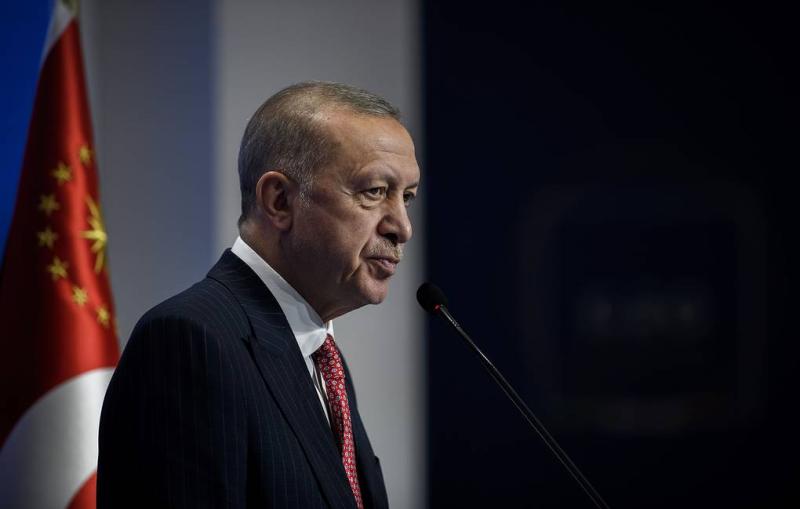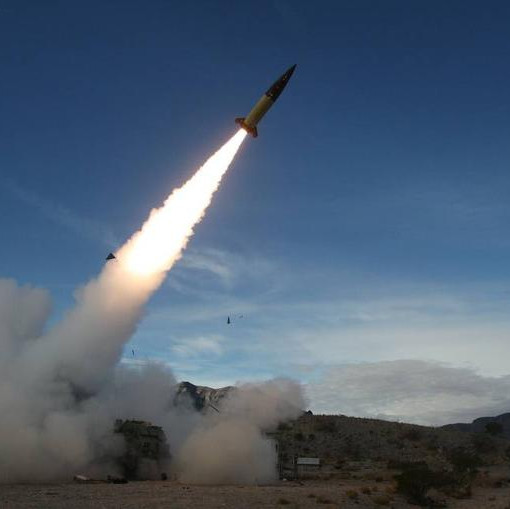
© Antonio Masiello/Getty Images/TASS
Top stories from the Russian press on Tuesday, November 22nd, prepared by TASS
Nezavisimaya Gazeta: Russian oil discount almost on par with West’s price cap
The Russian Federation is bracing for an EU embargo on Russian crude and petroleum products. On Wednesday, the G7 will announce the level of its fixed price cap. Earlier, a $40 to $60 limit was discussed, but a cap closer to $65 cannot be ruled out either. Experts interviewed by Nezavisimaya Gazeta do not expect any problems with Russian oil and petroleum shipments or insurance in the coming months. Moreover, Russia could use its own fleet for its energy supplies, including via the Northern Sea Route to Asia, in the future.
In October, Russian oil imports to China climbed 16% higher than the same period last year, but Chinese oil refineries cut their purchases of Russian crude for December, according to Reuters. And earlier this month, Russia shipped its oil to China via the Northern Sea Route for the second time in its history.
Some experts claim that Moscow will not have to react to the restrictions on its seaborne oil shipments to third countries, as the discounted oil price should not exceed the potential price cap. And Russian officials warn that those countries who would agree to use the oil price cap will be cut off from Russian oil supplies.
According to Alexander Potavin, an analyst at Finam, the topic of how Moscow could react to the oil price cap is very politicized. "The current prices almost coincide with the Western-proposed price ceiling. This means that it would be possible to tell everybody that Russia has been successfully selling its oil, despite the international sanctions," he told Nezavisimaya Gazeta. Given the huge fleet of oil tankers that Russia, China, India and Iran are using, consumers would unlikely feel any deficit in oil shipments amid the restrictions, and those countries should also help protect maritime routes and cargo insurance, and compensate for potential losses, Potavin assured.
Nezavisimaya Gazeta: Erdogan not keeping Moscow informed of operation targeting Kurdish territory
On Tuesday, Kazakhstan will host a new round of the Astana talks on Syria. At the meeting, Russia, Turkey, Iran and the Syrian opposition should be able to discuss Erdogan’s Claw-Sword operation, Russian Deputy Foreign Minister Mikhail Bogdanov told Nezavisimaya Gazeta. This military crackdown on Kurdish armed formations has taken on some distinguishing features, like Turkish officials making it clear that they would conduct it while keeping Moscow updated as little as possible - and in closer contact with Russia’s ally, Damascus.
Amid reports that Ankara is going to coordinate its Claw-Sword operation with Syrian intelligence, Turkish President Recep Tayyip Erdogan made quite resonant statements on a flight to Qatar to attend the opening of the FIFA World Cup. A day after the ceremony, the Anadolu news agency reported that Turkey’s leader said he would inform neither Russia nor the United States of its planned strikes on targets in Syria and Iraq. "We have not discussed the operation with either Mr. Biden or Mr. Putin, at the same time, both Biden and Putin are well aware of Ankara’s position and the fact that we could deliver strikes in the region at any time," Erdogan said. "Turkey will make its own decisions on what steps it should take," he insisted.
Experts among retired Turkish generals have repeatedly told local media that it is Russia and other external forces who have allegedly been hampering a potential normalization with President Assad in Damascus. Given this, the question arises as to whether the operation itself and Erdogan’s confrontational rhetoric could threaten Russia’s positions on a post-conflict settlement.
In an interview with Nezavisimaya Gazeta, RIAC expert Kirill Semenov doubted that any enhanced coordination between Ankara and Damascus on Erdogan’s military operation against the Kurds would hurt Moscow. "It would not be beneficial at all for Russia to control every Syrian process given the circumstances," the analyst said. This is why Moscow has been seeking a rapprochement between Ankara and Damascus, because this way Russia would be relieved of any excessive responsibility for quite a few developments in Syria, he explained.
Kommersant: Ukraine seeks price hike on oil shipments via Druzhba
Ukraine has increased the price of transporting Russian oil through the Druzhba pipeline by almost 34% since the start of 2022 and is going to hike the rate by another 16%, to €13.6 per metric ton, in 2023. Ukrtransnafta, the operator, attributes the spike to higher costs amid intense fighting and damaged energy infrastructure facilities. The hike is likely to be shouldered by end oil consumers, primarily Hungary’s MOL.
Meanwhile, sources told Kommersant that the damage done to the branch of the Druzhba oil pipeline was minimal and did not require such huge sums.
Igor Yushkov from the Financial University at the Russian government believes that Ukraine is actually trying to take advantage of the situation to use the remaining route of Russian oil exports to Europe on which Hungary is primarily dependent. According to him, the funds Kiev has accumulated since it raised its prices in April could be enough to both repair the recently damaged transformers and to replace every diesel generator along the entire Ukrainian leg of the pipeline and to switch it to autonomous electricity supplies. It could make sense for European companies, primarily MOL, to insist on an audit of the bills, because without any oversight, Ukraine could keep demanding transit rate increases, the expert warns.
Amid the European sanctions, Hungary has set aside the opportunity to use maritime routes for Russian oil imports, if crude shipments via the Druzhba link in Ukraine are halted. Budapest could use the oil pipeline in the Adriatic Sea via Croatia, but the northern leg of it should be expanded to compensate for a complete stoppage of Druzhba shipments.
Kommersant: Tokayev pledges peaceful, multifaceted policies after reelection
On Monday, Kazakhstan’s Central Election Commission reported the preliminary results of Sunday’s presidential elections. Incumbent leader Kassym-Jomart Tokayev garnered 81.31% of the votes. Tokayev who will now rule until 2029, has lately pledged to build a just Kazakhstan and pursue a multifaceted foreign policy that, the reelected leader said, would also be as peaceful as it gets.
Moscow tends to dislike the ambitions of any country in the region pursuing friendship with everybody around and is now especially envious of how post-Soviet nations interact with the West.
Meanwhile, Astana had its first clash with the West, and not with Russia after the presidential race. The Kazakh Foreign Ministry provided a swift and unprecedently harsh response to criticism by the OSCE’s Office for Democratic Institutions and Human Rights (ODIHR) who furnished a negative assessment of the vote count and insisted that some observers had failed to inspect the voting openly. Astana hinted it could wrap up its relations with the OSCE’s institution, ahead of a snap legislative election in the country next year.
However, this backlash against the ODIHR would hardly help transform the political reality in Kazakhstan. Tokayev retained power and even consolidated it further, and now he is expected to act to alleviate the problems his country is facing. Alexander Gabuev, a senior fellow at the Carnegie Endowment for International Peace, told Kommersant that the country’s economy is currently having an especially hard time. "That is because of the war (in Ukraine - Kommersant) and because of a looming global recession, and because an energy transition is imminent in the long term, so the country has to find new budget revenues," the expert concluded.
Vedomosti: Russian experts assess how sanctions could impact country’s decarbonization aims
The sanctions have curtailed Russia’s ability to reduce its greenhouse gas emissions, according to the Institute of Economic Forecasting at the Russian Academy of Sciences. According to it, Russia will partially fail to implement decarbonization measures and could only bring its CO2 emissions to 1.119 billion metric tons by 2050 instead of reducing those to 630 million metric tons - almost half of what it should under its strategic goal.
The imposition of sanctions will require a review of emission reduction plans, for decarbonization largely depends on imported equipment and technology, mostly from unfriendly countries, Institute Director Alexander Shirov told Vedomosti. The plan for carrying out this low carbon development strategy will be adjusted amid the sanctions and the new realities, an Economic Development Ministry official said. Nonetheless, the goals set by the president to achieve carbon neutrality will be maintained, he added.
Shirov finds the aim of achieving that goal by 2060 attainable, since economic growth will not be as fast as the strategy envisaged, so the amount of emissions will be lower. And the Russian economy is not so energy inefficient in terms of emissions, he argues. The country trails the European Union only in the field of electricity, and on this score, it looks better than China, the United States and other countries, and is far from being a top polluter in terms of emissions in steelmaking, the production of ammonia and aluminum, the expert added.
However, the duration of the sanctions pressure will be key, expert Tatyana Radchenko said. If the restrictions last for another two to three years, Russia could be a success in achieving its strategic goal by 2050, she believes.









